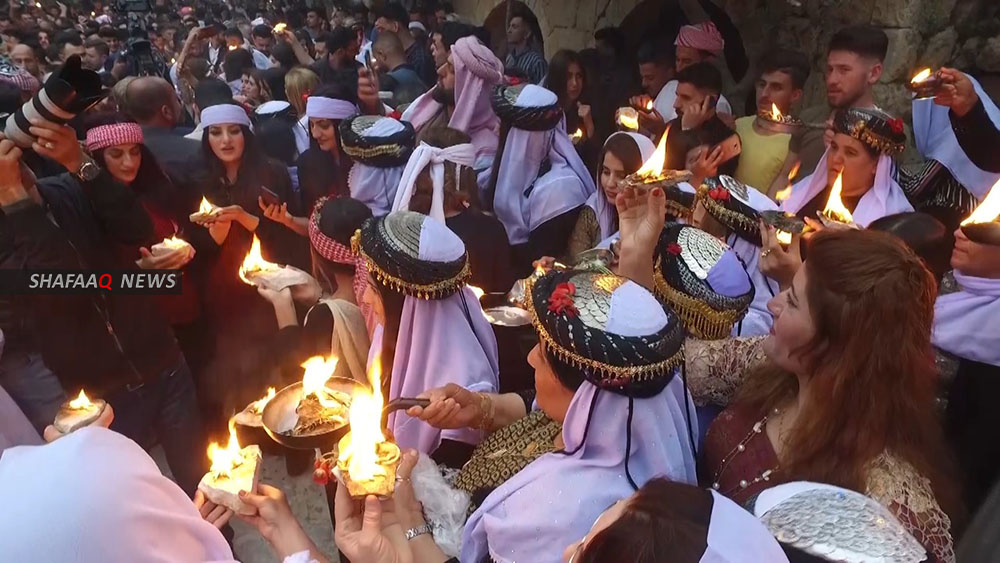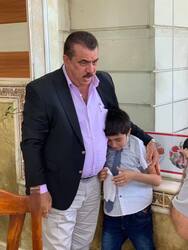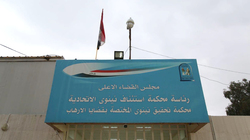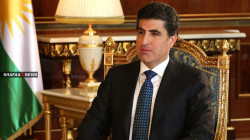The anniversary of the worst genocide of the 21st century

Shafaq News/ On the Third of July of each year, Yazidis relive the memory of the most horrible genocides of the century. Their whole existence as an ethnic-religious minority was doomed to demolition, despite blending in peace in their communities as they have been doing for hundreds of years.
The ambiguity of beliefs and rituals of this minority, which inhabited Iraq and some parts of Syria and Turkey, does not justify what ISIS did exactly six years ago, when it broke into their lives in the district of Sinjar and the surrounding areas, hazing them and their neighbors.
The Yazidi ambiguity and peculiarity should not be a cause of hatred and death and does not render any Yazidi-Kurdish, or Iraqi in general, forget the murderers who killing and captured all those who disagreed with their belief, doctrine, ideology or religion.
The Yazidis, for their misfortune, were a special target. The terrorists attempted to violently uproot them, by claiming their lives, capturing their women and their children, while the world timidly watched them, six years ago on that Black Day of August 2014.
As if history is repeating all over again and despite the horror of the genocide they were subjected to and the wave of global sympathy raised towards them, many around the world are still unaware of the depth of the disaster that has stroke them.
To illustrate the depth of the tragedy, The Director-General of Yazidi Affairs at the Ministry of Endowments of Kurdistan, Khairi Bouzani told Shafaq News agency that 360,000 people were displaced after the invasion of ISIS and about 100,000 people immigrated abroad, noting that these statistics are approved by the United Nations and do not include material losses in property, land, livestock, agriculture, automobiles, factories and others.
The Yazidis have been subjected to such crimes for hundreds of years, yet it never dissuaded them from their beliefs and belonging to their identity. History narrates that "Genocide" campaigns against them, which they refer to as "Ferman" (a resolution issued by Ottoman Sultan), have been many over the past centuries; Starting from the Abbasid caliph al-Mu’tassim campaign against them in the 9th century, then the many Ottoman campaigns, all the way to the Iraqi royal forces in the first quarter of the 20th century and Saddam’s Anfal campaigns.
Therefore, ISIS’s attacks and atrocities on the Yazidis in their villages and towns were another bloody chapter in their long path and it did nothing but increase their desire to be attached to their identity.
This peaceful minority -often wrongly referred to as the "Satanists", isolated themselves in small communities scattered in various areas in north-western Iraq, north-eastern Syria and south-western Turkey.
It is difficult to estimate their current numbers, ranging from 70,000 to 500,000. With fears, persecution and tarnishing their image, their numbers have undoubtedly decreased significantly over the past century.
One misconception by the Yazidi hardliners is that this name belongs to Yazid ibn Mu’awiya, the second caliph of the Umayyad caliphate (647-683 AD). However, the truth of this name derives from the ancient Kurdish word "Yazid", which means angel or god. The name of the Yazidis, therefore, means "slave to the Lord", through which the Yazidis describe themselves.
Khairi Bouzani, interviewed by Shafaq news agency, documents the results of the genocide committed by ISIS against the Yazidis on that ominous day on August 3rd, 2014.
While 1,293 people were killed in the first days of the massacres, according to Bouzani, the number of mass graves discovered in Shingal -the Kurdish name of Sinjar- has so far reached 83, as well as dozens of individual gravesites.
Furthermore, records document 2,745 orphans and 6,417 abducted, of which 3,548 were females and 2,869 were males.
Bouzani pointed out that the number of religious shrines bombed by ISIS was 68.
3,530 Yazidis survived the atrocity of ISIS, including 1,199 women and 339 men. Of the children, 1,041 were females and 951 were males.
A further 2,887 people are still missing, including 1,308 females and 1,579 males.
However, these are just abstract numbers, while hundreds of thousands of stories are going untold. Although the international community has shown some interest in the issue of the extermination of The Yazidis over the past years and tried to highlight shreds of their suffering in the European media and parliaments, justice is not served, as six years after the genocide, thousands of Yazidis are still out of their homes.
On this occasion, the Iraqi President Barham Saleh said, "The inadequacy and inaction in meeting the requirements of our people in Sinjar are truly shameful", Stressing, "the need to overcome political and administrative obstacles".
The president of Kurdistan, Nechirvan Barzani, stressed that, "the tragedy of the Yazidis and the disaster of Sinjar district –on the anniversary of its abhorrence by ISIS, are imaginable and shocked the world", stressing the need to pursue, "the efforts to provide stability, restore safety and reconstruct Sinjar and converting it to a province".





